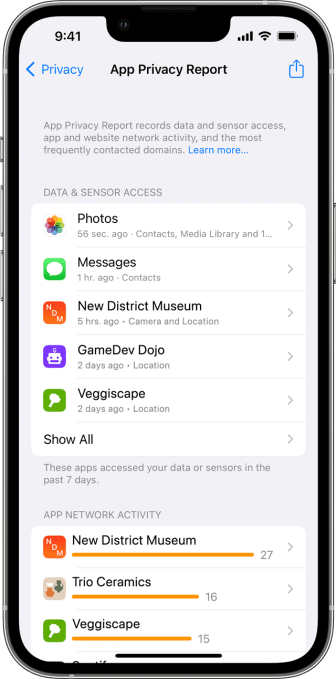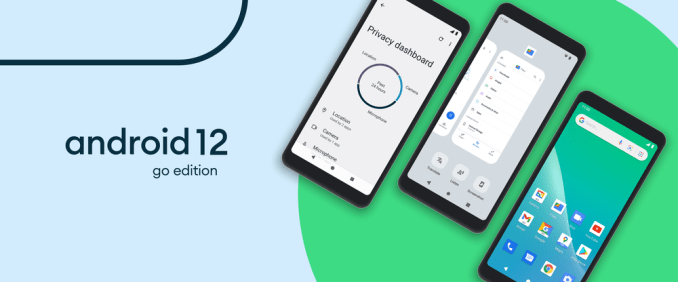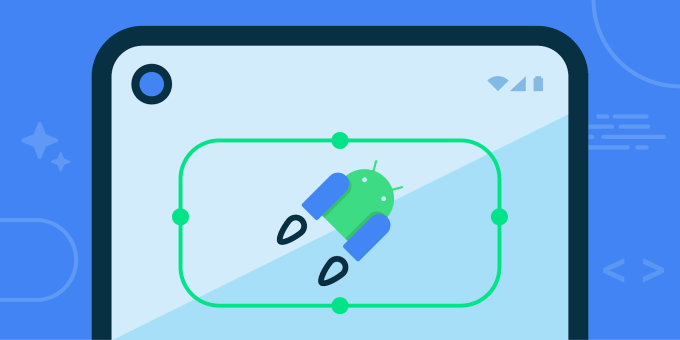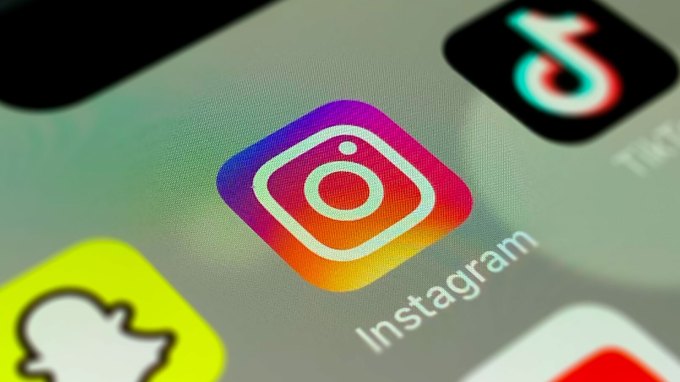S
Sarah Perez
Guest
Welcome back to This Week in Apps, the weekly TechCrunch series that recaps the latest in mobile OS news, mobile applications and the overall app economy.
The app industry continues to grow, with a record number of downloads and consumer spending across both the iOS and Google Play stores combined in 2021, according to the latest year-end reports. App Annie said global spending across iOS and Google Play is up to $135 billion in 2021, and that figure will likely be higher when its annual report, including third-party app stores in China, is released next year. Consumers also downloaded 10 billion more apps this year than in 2020, reaching nearly 140 billion in new installs, it found.
Apps aren’t just a way to pass idle hours — they’re also a big business. In 2019, mobile-first companies had a combined $544 billion valuation, 6.5x higher than those without a mobile focus. In 2020, investors poured $73 billion in capital into mobile companies — a figure that was up 27% year-over-year.
This Week in Apps offers a way to keep up with this fast-moving industry in one place, with the latest from the world of apps, including news, updates, startup fundings, mergers and acquisitions, and suggestions about new apps and games to try, too.
Do you want This Week in Apps in your inbox every Saturday? Sign up here: techcrunch.com/newsletters
Apps have been accused of quietly snooping on their users for some time. They collect data and reshare it with advertisers and other third parties, often without users’ truly informed consent. Now the tables are turned in a sense, as users will finally be able to snoop on their apps, thanks to Apple’s new App Privacy Report feature, now available in iOS 15.2 and iPadOS 15.2. This app transparency feature lets an iOS user see what their apps are actually doing — including which apps are accessing the data and the sensors on your phone, as well as where that data is being shared. The latter is revealed through the feature’s ability to report with which third-party websites an app is communicating. Some of those may be for analytics purposes, but others may be adtech sites.

Image Credits: Apple
To use the feature, you’ll head to Settings > Privacy > App Privacy Report then switch it on. Over time, you’ll be able to see how apps accessed your data over the past seven days, complete with timestamps for its every action. While Apple should be applauded for making this information more transparent, there’s some concern that the report will leave users feeling less empowered, rather than more empowered. Sure, a favorite app may be contacting some odd-sounding domain, but what data exactly was shared? Would the user be okay with that data sharing if it were explained? If they’re not okay with it, what are they supposed to do to stop it, other than just uninstalling the app?
Apple seems to be betting on the fact that simply making this information public could push the app industry toward better behavior that’s more respectful of user privacy. But just like most users never read those long user agreements when installing software in the first place, it’s not clear to what extent this new feature will be adopted by mainstream users.
Google details Android 12 Go edition

Image Credits: Google
Google this week offered more details about the new features and updates that will be available when the first devices running Android 12 (Go Edition) are launched in 2022. Designed for low-end smartphones, apps on Go Edition will launch up to 30% faster and with smoother animation, Google says — that means they’ll open instantly, instead of presenting users with a blank screen. The new SplashScreen API will help Android developers provide this consistently smooth experience when their users launch their apps.
The updated OS will also automatically save battery life and storage by hibernating apps that haven’t been used for extended periods of time. The Files Go app, meanwhile, allows users to recover files within 30 days so users can safely delete files when they need to free up space.
Other new features include guest profiles on the lock screen; offline sharing with nearby devices via Nearby Share; a privacy dashboard that shows app activity, permissions and access to sensors; a privacy indicator that alerts you when apps are using your mic or camera; the ability to select approximate location instead of precise location when sharing your information with apps; plus the ability to listen to the news, and translate on-screen content into your language from the screen where you find your recent apps.
Some of the new features were brought over from the main Android 12 OS to Go Edition, while others were designed for the needs of low-end smartphone users — a large market. Google says more than 200 million people actively use an Android (Go Edition) phone.

Image Credits: Google

Image Credits: Bryce Durbin/TechCrunch
The app industry continues to grow, with a record number of downloads and consumer spending across both the iOS and Google Play stores combined in 2021, according to the latest year-end reports. App Annie said global spending across iOS and Google Play is up to $135 billion in 2021, and that figure will likely be higher when its annual report, including third-party app stores in China, is released next year. Consumers also downloaded 10 billion more apps this year than in 2020, reaching nearly 140 billion in new installs, it found.
Apps aren’t just a way to pass idle hours — they’re also a big business. In 2019, mobile-first companies had a combined $544 billion valuation, 6.5x higher than those without a mobile focus. In 2020, investors poured $73 billion in capital into mobile companies — a figure that was up 27% year-over-year.
This Week in Apps offers a way to keep up with this fast-moving industry in one place, with the latest from the world of apps, including news, updates, startup fundings, mergers and acquisitions, and suggestions about new apps and games to try, too.
Do you want This Week in Apps in your inbox every Saturday? Sign up here: techcrunch.com/newsletters
Top Stories
Apple’s App Privacy Report is here
Apps have been accused of quietly snooping on their users for some time. They collect data and reshare it with advertisers and other third parties, often without users’ truly informed consent. Now the tables are turned in a sense, as users will finally be able to snoop on their apps, thanks to Apple’s new App Privacy Report feature, now available in iOS 15.2 and iPadOS 15.2. This app transparency feature lets an iOS user see what their apps are actually doing — including which apps are accessing the data and the sensors on your phone, as well as where that data is being shared. The latter is revealed through the feature’s ability to report with which third-party websites an app is communicating. Some of those may be for analytics purposes, but others may be adtech sites.

Image Credits: Apple
To use the feature, you’ll head to Settings > Privacy > App Privacy Report then switch it on. Over time, you’ll be able to see how apps accessed your data over the past seven days, complete with timestamps for its every action. While Apple should be applauded for making this information more transparent, there’s some concern that the report will leave users feeling less empowered, rather than more empowered. Sure, a favorite app may be contacting some odd-sounding domain, but what data exactly was shared? Would the user be okay with that data sharing if it were explained? If they’re not okay with it, what are they supposed to do to stop it, other than just uninstalling the app?
Apple seems to be betting on the fact that simply making this information public could push the app industry toward better behavior that’s more respectful of user privacy. But just like most users never read those long user agreements when installing software in the first place, it’s not clear to what extent this new feature will be adopted by mainstream users.
Google details Android 12 Go edition

Image Credits: Google
Google this week offered more details about the new features and updates that will be available when the first devices running Android 12 (Go Edition) are launched in 2022. Designed for low-end smartphones, apps on Go Edition will launch up to 30% faster and with smoother animation, Google says — that means they’ll open instantly, instead of presenting users with a blank screen. The new SplashScreen API will help Android developers provide this consistently smooth experience when their users launch their apps.
The updated OS will also automatically save battery life and storage by hibernating apps that haven’t been used for extended periods of time. The Files Go app, meanwhile, allows users to recover files within 30 days so users can safely delete files when they need to free up space.
Other new features include guest profiles on the lock screen; offline sharing with nearby devices via Nearby Share; a privacy dashboard that shows app activity, permissions and access to sensors; a privacy indicator that alerts you when apps are using your mic or camera; the ability to select approximate location instead of precise location when sharing your information with apps; plus the ability to listen to the news, and translate on-screen content into your language from the screen where you find your recent apps.
Some of the new features were brought over from the main Android 12 OS to Go Edition, while others were designed for the needs of low-end smartphone users — a large market. Google says more than 200 million people actively use an Android (Go Edition) phone.
Weekly News
Platforms: Apple
- Apple publicly released iOS 15.2, the second major update to its iOS 15 operating system first released in September. The new software includes many of the features that were delayed from shipping in the original release, including the new App Privacy Report which lets users know which apps are accessing their private information, like their photos, location, contacts, microphone and camera over the past seven days. It also includes an Emergency SOS update, the Apple Music Voice Plan, support for Legacy Contacts who can access your Apple ID when you die, Hide My Email, Communication Safety for Messages and more.
- Apple is investigating an issue with the latest Xcode release, which is impacting developers using Swift packages as standalone or dependencies, who may see failures during package resolution.
Platforms: Google

Image Credits: Google
- Google launched Jetpack Glance Alpha for app widgets. The new framework, built on top of the Jetpack Compose runtime, is designed to make it easier and faster to build app widgets for the Android homescreen and other surfaces.
- Google rolled out the Pixel 6 update with fixes for the camera and fingerprint sensors.
- Google announced “Notes from Google Play,” a new series where Google will share key insights and best practices to inspire app developers, by focusing on developers and their creativity. The first edition highlights developer Mohammed Kamara, whose customized healthcare app is trying to create a better world for women of color.
Augmented Reality
- Google was spotted hiring for someone to work on an “Augmented Reality OS” for an “innovative AR device.” (Google Glass is coming back? Wonder if it runs apps?)
Fintech/Crypto
- Cash App and Robinhood rolled out new crypto gifting features just ahead of the holidays. Cash App will also let users gift stock.
Social
Image Credits: Bryce Durbin/TechCrunch
- Despite its troubles, Instagram has now surpassed 2 billion MAUs worldwide, according to a report by CNBC citing unnamed Meta employees as sources. The news (which smells a bit like a planned leak if we’re being honest) paints a picture of a company unaffected by the recent congressional scrutiny and whistleblowing. It’s...
Please login to view full content. Log in or register now.
